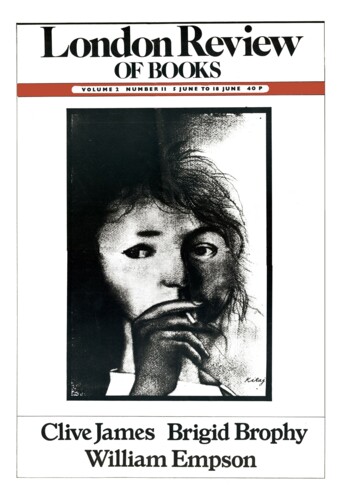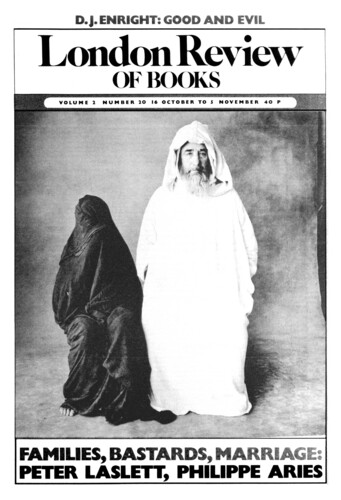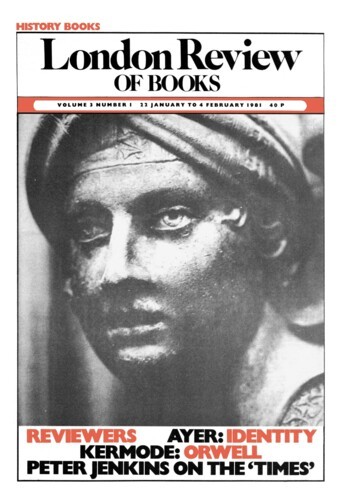Portrait of the Scottish Poor
Rosalind Mitchison, 5 June 1980
This book is based on one of the most thorough of 19th-century government inquiries, the six volumes of the Report of the Royal Commission on the Poor Law (Scotland) of 1844. The Commission had, the year before, put out an elaborate questionnaire to the 906 parishes of Scotland, usually to the minister, with 70 questions on it, most of which were answered for almost all the parishes. There was also the more usual information-gathering exercise by interview. The result of the inquiry is an enormous stock of detailed information covering diet, prices, wages, amenities, facilities for saving and social policy. The authors, supported by a grant from the Social Science Research Council, have analysed the replies with the aid of the SPSS computer programme and mapped the results. They have then set out to display and discuss the total picture. Proffessor Smout’s is the most original and creative mind at work on Scottish social history, and the discussion has depth and perception as well as human warmth.





